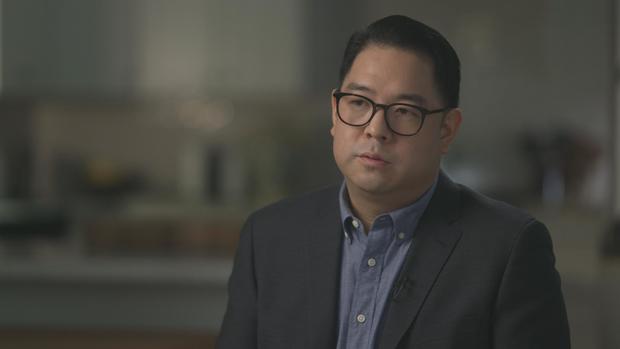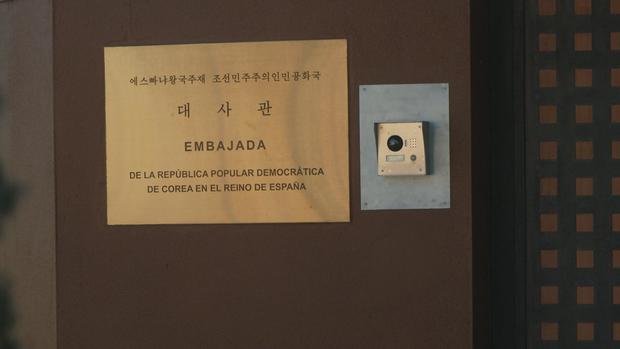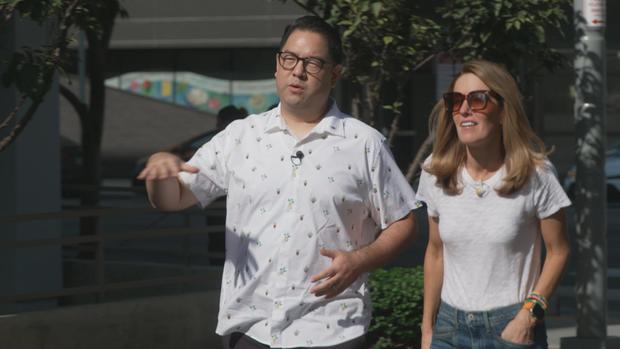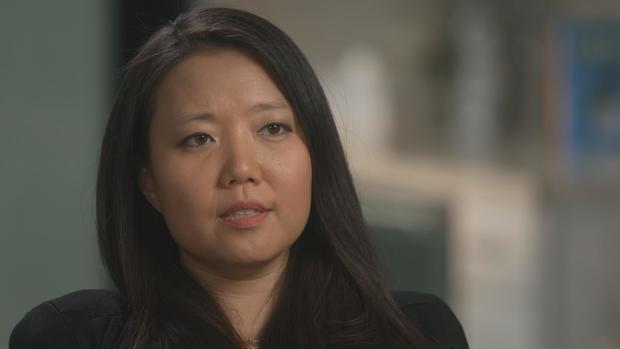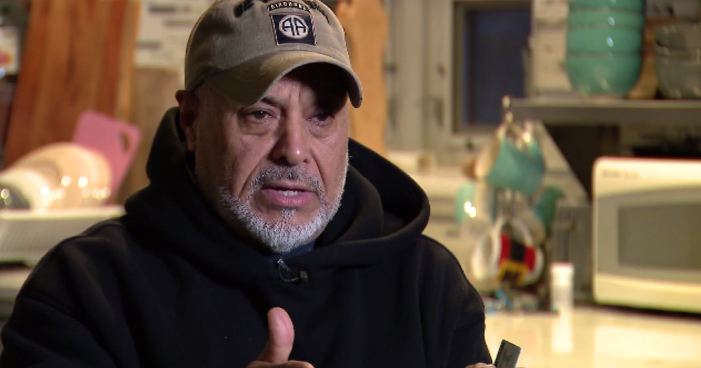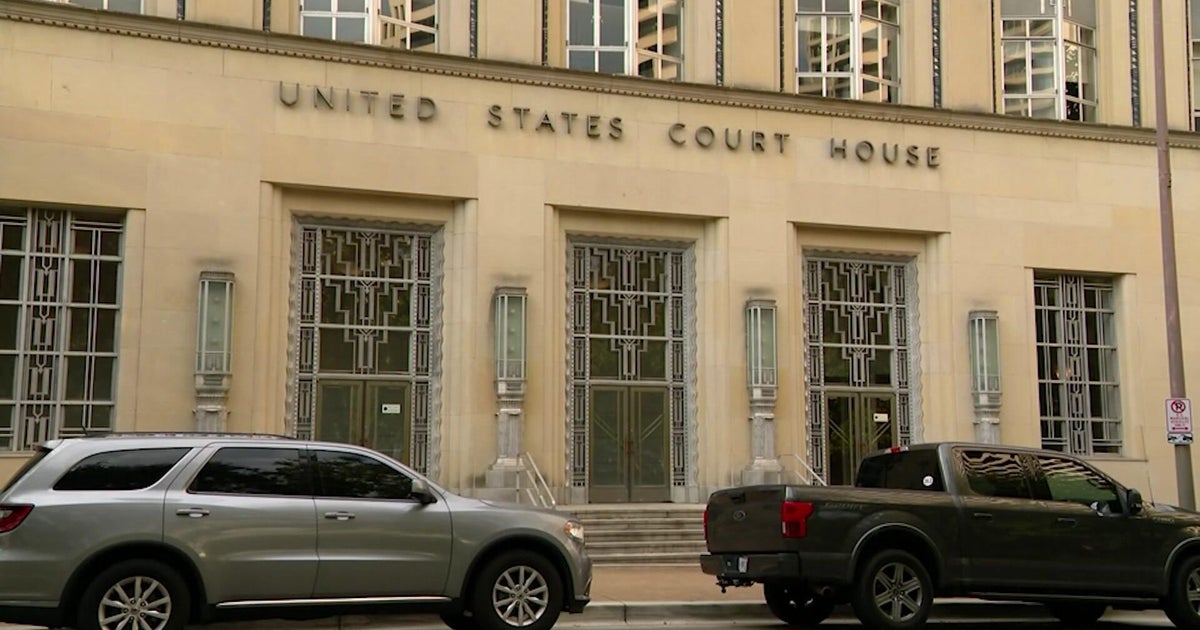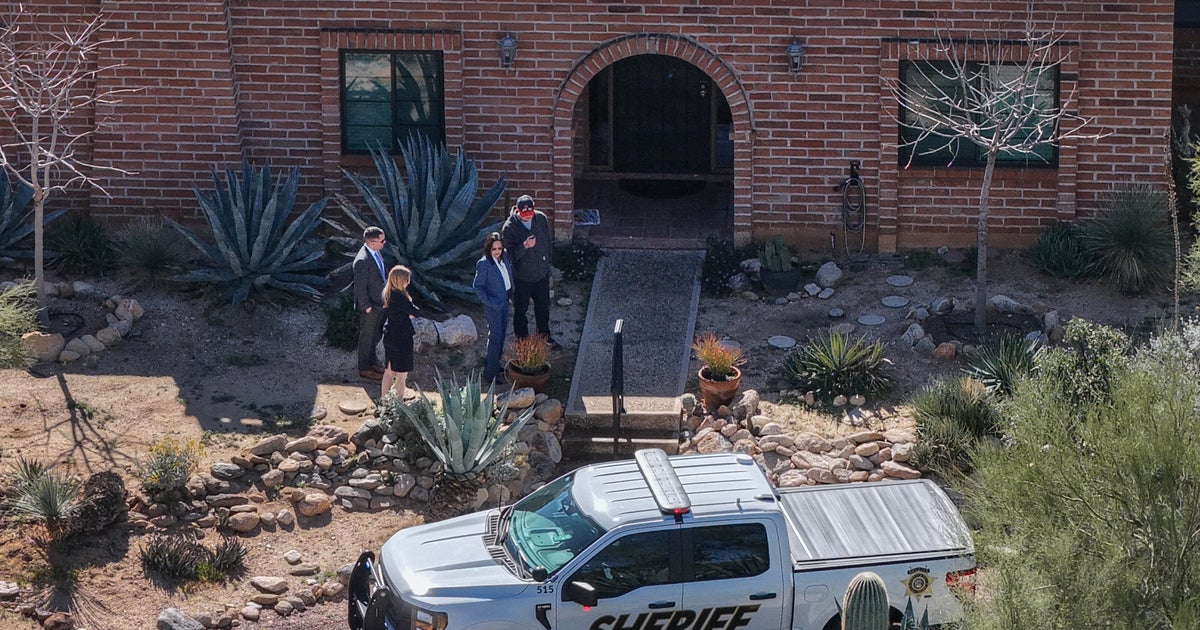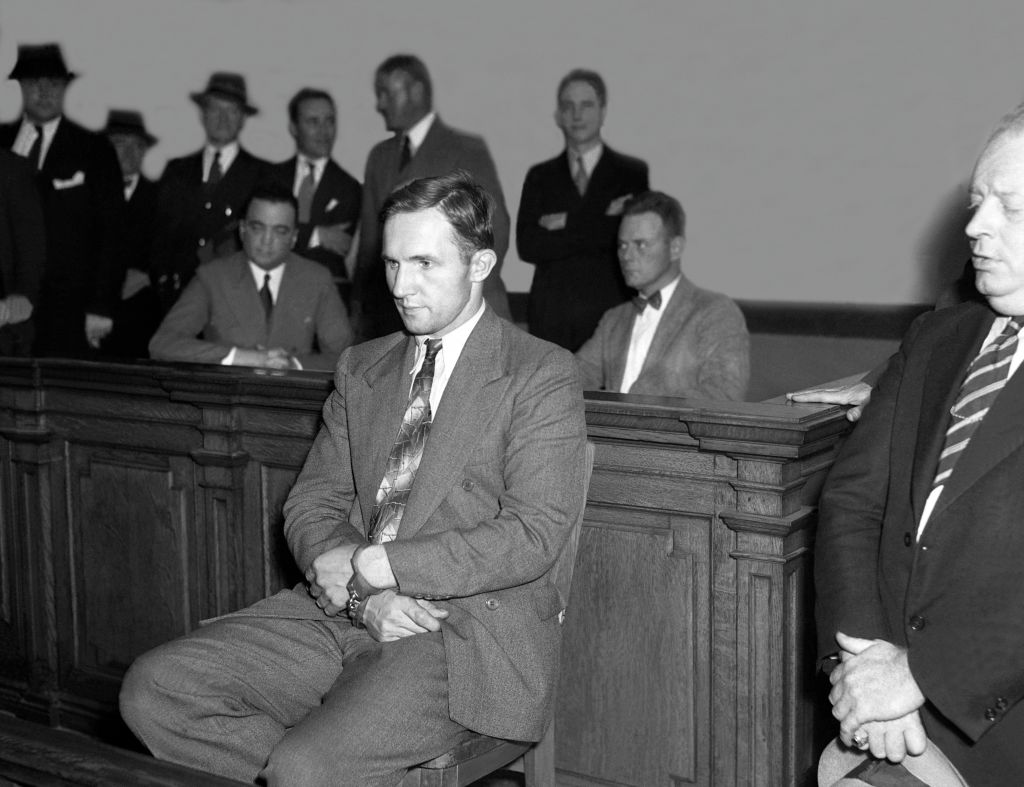A U.S. veteran says he tried to help North Koreans defect. Now he's facing criminal charges.
With handcuffs and fake guns, supposed fake kidnappers stormed North Korea's embassy in Spain, where they tied up staff members and herded them into a room.
The incursion into the embassy was organized by a secretive group known as Cheollima Civil Defense, which had a history of helping North Koreans defect. Christopher Ahn, a volunteer with Cheollima and a U.S. veteran, says he was told embassy staff had asked for help defecting and that Cheollima staged the February 2019 raid as a kidnapping to protect the staff members' friends and family still living in North Korea from retaliation.
"We've answered your call, and we're here to help you defect," Ahn said he told the staff.
Then the police arrived. Ahn escaped to the U.S., but upon his return, he learned from the FBI that he had become a North Korean target. Then came another blow. Spain had requested he be extradited to face charges in connection with his actions in Madrid. Ahn says he fears that if he is extradited to Spain, a country with ties to North Korea, he could be vulnerable to assassination.
The people Ahn has helped
Ahn, the 43-year-old son of Korean immigrants, joined the Marines at 19 and served in Fallujah during the Iraq war. He got his MBA after he returned from Iraq and co-founded a consulting company. Then, seven years ago, the self-described "do-gooder" took on a more unusual role: helping North Korean diplomats defect.
Cheollima's grand mission was to overthrow the North Korean dictatorship, one of the most repressive regimes in the world. The group was founded by Adrian Hong, a Mexican citizen of Korean descent, and a U.S. green card holder. Hong has said he considers himself a "freedom fighter," but Ahn says that's not why he volunteered with Cheollima Civil Defense.
"My motivation was just simply to bring some hope to people who were hopeless," Ahn said.
In early 2017, Ahn was involved in the rescue of Kim Han Sol, the then 21-year-old son of Kim Jong Nam. Kim Jong Nam, the half-brother of North Korean leader Kim Jong Un, was publicly assassinated in a crowded international airport in Malaysia that February. Kim Han Sol, who was living in China and was viewed by some as a potential heir and threat to the North Korean regime, was terrified, Ahn said. Kim Han Sol turned to Cheollima for help.
Ahn met Kim Han Sol in Taiwan and hid him in a private room at the airport in Taipei for 36 hours, while Adrian Hong negotiated a safe haven for him. Hong then asked Ahn to buy Kim Han Sol a ticket to Amsterdam.
While in the Taipei airport, Ahn says two CIA officers showed up. After Hong confirmed the officers' identities, one of them escorted Kim Han Sol onto his flight. But Kim Han Sol never showed up in the Amsterdam arrivals hall. It's believed he was whisked away to live a life in protective custody.
In the fall of 2018, Ahn was in Italy when Cheollima reportedly was involved with another high-profile rescue. North Korea's acting ambassador in Rome walked out of the embassy with his wife and into a waiting Cheollima car.
Mission to Spain
As part of his mission to help, Ahn flew to Spain in February of 2019. When he landed, he learned Cheollima was planning to help the entire North Korean embassy there — an estimated 10 people — defect.
"What I was told was that everyone in the embassy wanted to defect but were afraid to. And so, our main point of contact in the embassy had asked us to stage a kidnapping," Ahn said.
Security cameras captured Cheollima leader, Adrian Hong, entering the embassy through the front door on Feb. 22, 2019, around 4:30 p.m. A few minutes later, the rest of the team, including Christopher Ahn, followed him into the diplomatic compound.
Aware they were likely under surveillance, Ahn says embassy staff members were tied up and herded into a room where he told them what was happening. According to Ahn, the staff appeared excited and in disbelief when they heard the news.
"There's a ring at the door": What went wrong at the embassy
About an hour after the team arrived, Ahn said they were on the verge of leaving the embassy with the North Koreans when everything changed.
"There's a ring at the door and everyone is very surprised by this," Ahn said.
It was Spanish police.
"And then you see the color on everyone's face just turn to lily white," Ahn said about the embassy staff. "And they would whisper to me very terrified, and say that, 'They know, they know, they know.'"
Mission leader Adrian Hong put on a North Korean lapel pin to look like a diplomat, then opened the front door. Officers told him that a bloodied North Korean woman had frantically told police there was a problem at the embassy. Hong replied there was nothing wrong, then shut the door.
That's when the Cheollima team realized not everyone at the embassy was accounted for.
"It was the wife of one of the members of the embassy staff," Ahn said.
She'd jumped off a balcony minutes into the incursion, injuring herself in the process, and was found by an alarmed Spanish motorist.
After the police left, the phone started ringing and ringing and ringing, Ahn said.
"And in that echoey house with the phone ringing, it's just echoing everywhere," Ahn said. "I don't care how courageous you think you are, that is scary. And so it is totally and completely understandable why they would be afraid."
No one knew who was calling, but the fear was the North Korean government was now aware something was amiss inside its Madrid embassy.
Aborting the mission
Acting Ambassador So Yun Sok, Cheollima's main point of contact for the alleged planned defection, seemed spooked, Ahn said. With the acting ambassador now too afraid to go, according to Ahn, Adrian Hong called off the mission.
Ahn said the main point of contact inside the embassy gave the Cheollima team keys to embassy vehicles. Cheollima fled just after 9 p.m., four and a half hours after the group entered the embassy. They ditched the embassy vehicles all over Madrid. No one was caught. Ahn hailed a cab and went to Portugal before making his way back to the U.S.
The team left knives, handcuffs and fake guns behind at the embassy, as well as a shaken staff.
The North Korean acting ambassador, who supposedly asked for help defecting, told Spanish police the entire embassy staff had been beaten and held against their will. Ahn said he never saw anyone from the Cheollima team harm any member of the embassy staff.
"I mean, it's the exact opposite. I was a little concerned that it didn't look real enough," he said. "They were trying so hard to make sure that nobody got hurt."
But the Spanish authorities describe the events of Feb. 22, 2019 as an attempted kidnapping.
"It means we did our job. We made it look real, and that was the point," Ahn said. "We wanted to make it look real as possible, because we had to. We had no other choice."
Back in the U.S.
Hong, back in the U.S., gave the FBI computers and other digital data Cheollima took from the North Korean embassy. Ahn said he met with FBI agents at his apartment in Los Angeles. He describes it as a friendly conversation, where he told agents about what happened in Madrid and his involvement.
"We ended the meeting with me asking, like, 'Hey, is everything good, you know? Should I be concerned with anything?' And their response was, 'Oh, no, not at all. From our perspective, you were furthering American interests,'" Ahn said.
Two or three weeks later, Ahn said he got a call from the FBI alerting him that North Korea had discovered his identity and that he needed to be vigilant.
"And that the only place in this world that I am safe is here in the United States," Ahn said.
But two months after the raid, in April 2019, Ahn said he was carrying a gun when he came to Hong's L.A. apartment to drop off security cameras and was stunned to find U.S. Marshals inside. He said they held a gun to his head.
Ahn was taken to jail in connection with his role in the raid of the North Korean embassy in Madrid. He thought he'd get bail immediately, but spent 87 days behind bars inside the Los Angeles Metropolitan Detention Center instead.
Spain had issued international arrest warrants for him and seven other Cheollima activists, charging them with breaking and entering, illegal restraint and causing injuries. U.S. Marshals published a wanted poster for Adrian Hong, describing him as armed and dangerous. He went underground and remains a fugitive today.
Ahn, now out on bail, has been ordered to wear an ankle monitor. Spain, which has an extradition treaty with the U.S., wants Ahn extradited to stand trial in Madrid. For five years, the U.S. Department of Justice has argued that federal courts are obligated to sign off on sending Ahn to Spain.
Ahn is fighting that effort, but says he understands the impulse.
"Spain needs to make sure that other countries and their embassies feel safe. The United States needs to make sure their allies know that they honor their treaties and their agreements," he said. "But North Korea's not a normal country."
"A very high priority target"
Sung-Yoon Lee, an expert on North Korea and a fellow at The Wilson Center, a Washington-based think tank, testified at Ahn's federal court hearing. He said that if Ahn is extradited to Spain, he would be vulnerable to North Korean assassins.
"Spain is an advanced country. But North Korea is brazen enough to commit crimes like kidnapping and murder in several European countries," Lee said. "Christopher Ahn is, I'm afraid, a very high priority target for the Kim regime."
Last year, the North Korean government released a statement blasting the United States over the embassy incident. The statement singled out one person by name: Christopher Ahn. The North Koreans called him "a felon who deserves severe punishment from every aspect."
"North Korea has a history," Ahn said. "The assassination they did in Malaysia wasn't their first one. And they had been publicly embarrassed with what happened in Spain. They had been publicly embarrassed with me helping rescue Han Sol. And when they are embarrassed, they respond fiercely. So why wouldn't I believe the FBI when they tell me that North Korea's trying to kill me?"
Naeun Rim, Ahn's attorney, said Secretary of State Antony Blinken and President Biden both have the power to prevent Ahn from being extradited, but that, historically, the State Department does not block extraditions.
"There are almost no instances where the State Department has stepped in and stopped an extradition," Rim said. "But there are also no cases where the extradition request is actually being driven by North Korea, a country that the United States does not have diplomatic ties with for a reason."
The State Department, the Justice Department and the FBI all declined interview requests when asked about Ahn's potential extradition to Spain. Spanish officials, when reached by 60 Minutes, also declined to be interviewed.
Last year while filming outside North Korea's embassy in Madrid, a 60 Minutes crew was unexpectedly confronted by So Yun Sok, the man who was Cheollima's main point of contact for the alleged fake kidnapping.
60 Minutes wanted to interview him. He wanted the crew arrested. Neither side got what it wanted.

